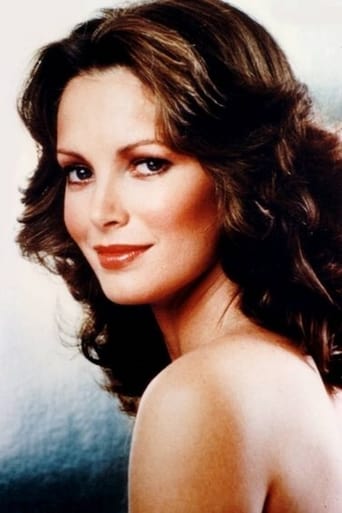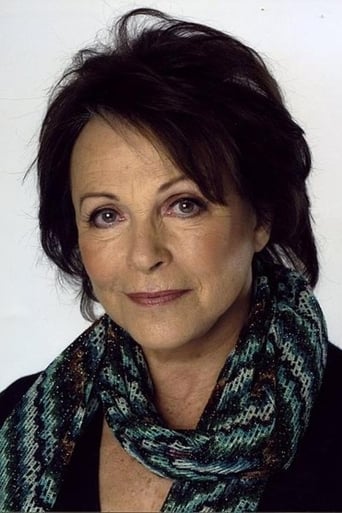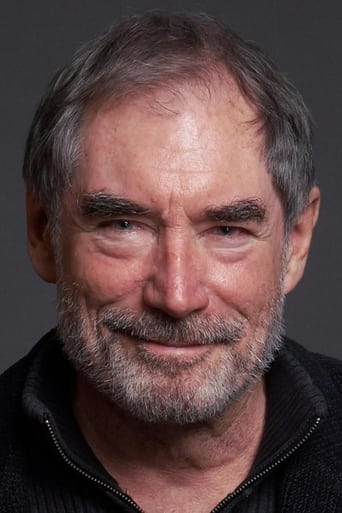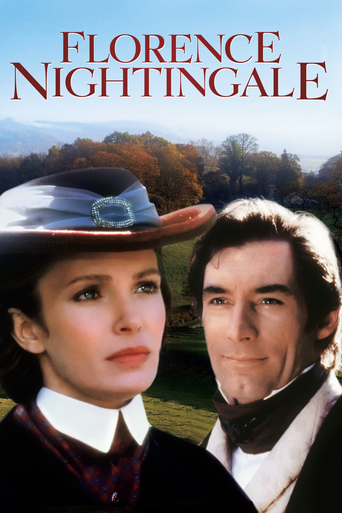
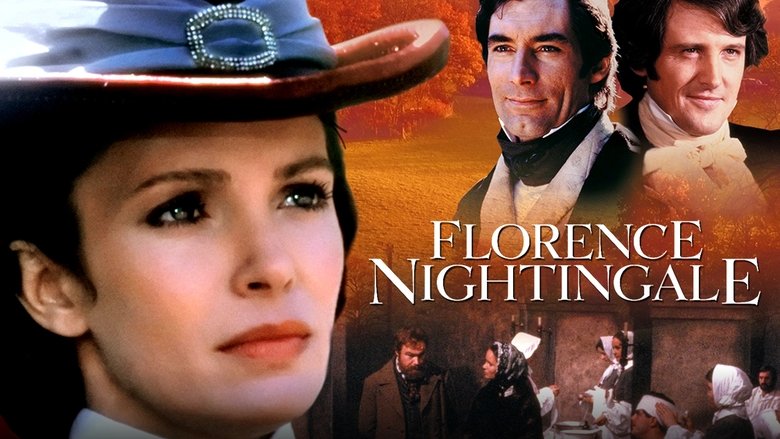
Florence Nightingale (1985)
This is the fact-based story of an aristocratic woman who defies Victorian society to reform hospital sanitation and to define the nursing profession as it is known today. After volunteering to travel to Scutari to care for the wounded soldiers, who are victims of the Crimean war, she finds herself very unwelcome and faces great opposition for her new way of thinking. However through her selfless acts of caring, she quickly becomes known as 'The Lady with the Lamp', the caring nurse whose shadow soldiers kiss.
Watch Trailer
Cast


Reviews
I like the storyline of this show,it attract me so much
Very very predictable, including the post credit scene !!!
Great Film overall
Absolutely the worst movie.
Whilst I found the film interesting it is a pity that Jaclyn Smith did not take the trouble to perfect her English accent as very often her pronunciation of vowels was American rather than English. Especially for somebody like Florence Nightingale who would have had a very English accent! Movie makers spend so much money on these productions and very often ignore details like this which are very important. Meryl Streep is the only American actress who can perfect any accent according to the role she is playing.
Florence Nightingale has long been a revered figure in Britain, so much so that she has even been officially canonised by the Church of England, so it is not surprising that a number of films have been made about her life, the most famous of which is probably "The Lady with the Lamp" with Anna Neagle from 1951. (I must admit that I have never seen any of them). Nightingale had many achievements to her credit; she was the founder of modern nursing, a celebrated social reformer and also a gifted mathematician and statistician, being regarded as a pioneer of statistics as an intellectual discipline. Her prominence in the public's imagination, however, largely rests upon her role as a nurse during the Crimean War. Most of the films I refer to earlier were made in the early twentieth century; the first dates from as long ago as 1912, only two years after her death. This television drama from 1985 is the only film about her in recent decades and, as one might expect, deals with her early years, up to and including her Crimean War experiences. When I recently reviewed "Grace Kelly", another eighties made-for- television biopic starring a former Charlie's Angel, in that case Cheryl Ladd, it struck me as an object lesson in how not to make a filmed biography, being quite devoid of any insight into what sort of person Kelly was or of any dramatic tension. Its only aim seemed to be to convey factual information; I could just as well have been watching a dramatisation of an encyclopedia entry. The lack of any physical resemblance between Ladd and the woman she was playing didn't really help matters. Certainly, Jaclyn Smith probably looks even less like Florence Nightingale than Ladd does like Grace Kelly, but that does not matter quite so much. Kelly was one of the iconic beauties of her generation, whereas Nightingale, although described by contemporaries as attractive in her youth, became famous for matters quite unconnected with her looks, and this film avoids most of those defects which so marred "Grace Kelly". A biopic needs to do more than simply narrate the facts; it also needs a narrative structure akin to that of a purely fictitious drama, and this can often be supplied by dramatising some conflict or struggle in the life of its subject. The story as told here is that of a strong woman who has to struggle against obstacles, both external social ones and internal psychological ones, in order to achieve her destiny. Nightingale's internal conflict is the one between her love for the poet and statesman Richard Monckton Milnes and her religiously-inspired sense of vocation as a nurse. In reality, Nightingale rejected Milnes after a nine year courtship, convinced that marriage would interfere with her ability to follow her calling, whereas in the film it is he who rejects her, a change probably made in order to soften her character. Nightingale's external conflicts are twofold. She initially experiences resistance from her family to the idea of her becoming a nurse- in the early nineteenth century nursing was not regarded as a fit profession for a young lady of quality- but this is soon overcome after she wins over her kindly, liberal father William. She faces more serious opposition to her plans to form a female nursing corps to nurse soldiers in the Crimean War. The British military establishment, including the Army Medical Corps, was particularly resistant to change- wounded soldiers had never previously been attended by female nurses- and tended to regard sick and wounded "other ranks" as expendable, even if their wounds had been incurred while performing some heroic action. Even here, however, Nightingale eventually succeeds in her goals, aided by allies such as the politician Sidney Herbert and the journalist William Russell, and by the fact that even the Army top brass cannot close its eyes to the dramatic reduction in the death rate achieved by her methods. Jaclyn Smith was easily the most beautiful of the various "Angels", with Tanya Roberts her only serious rival in that department. (I realise that will be a controversial statement, but then I am one of the few heterosexual males of my generation not to have had a schoolboy crush on the artificial-looking Farrah Fawcett-Majors). Jaclyn also struck me as having a lot more talent than some of the other Angels, so I am always surprised that she never went on to become a major movie star, although she has remained a well-known figure on television. She acquits herself well here, showing that there was a lot more to her than just a bikini- clad beauty and that she was also capable of taking on leading roles in serious drama. The best of the supporting cast are probably Jeremy Brett as William and future James Bond star Timothy Dalton as Milnes. "Florence Nightingale" is informative, but also dramatically satisfying, the sort of biopic that works both as biography and as drama. It can serve as an object lesson in how to make a successful filmed biography. 7/10
Jaclyn Smith may not be the Cate Blanchet of her generation but definitely talented as compared to most of her contemporary.This is also one of the best TV movie drama in the 80's. Sad to say, Hollywood don't make this kind of movies anymore.Excellent performances from the entire cast. Jaclyn Smith is acting here with sincerity. You can't avoid watching her face ( beautiful in every angle) gracefully on the screen, but she's shown emotions over and above expectation.Smith is not the "ïndie film star" of sort --a.k.a critics ravers. But if you want to sit down and enjoy a two to three hour TV production in the comfy of your own home then this one excellent production is for you.Highly recommended....
CAUTION: SPOILERS POSSIBLEI watched this movie in full the other day and really liked it. I had not known even the basics of the story of Florence Nightengale, but I think this TV movie did fine with at least being informative. I'm sure much of it was dramatized, maybe even romanticized. Jaclyn Smith is a beautiful woman with a silky, sensual voice, but it's this very voice that I thought made her portayal beautiful. So compassionate and soft and comforting while reading Scriptures to wounded/dying soldiers. I do not agree with one reviewer who says Smith's acting is lousy. I don't see any lousy acting, only perhaps romanticized. Maybe the real Flo wasn't as beautiful. Maybe her voice wasn't as soft. But the point is, she dedicated her life to nursing. I would to God I could be that kind of nurse. She worked herself nearly to death during the Crimean War, that's how dedicated she was. There are reports now that the Founder of modern Nursing might have been bipolar, which may explain why she would rather make rounds with a lamp and make sure the men were comfortable and safe rather than sleep. At any rate, Smith's portrayal of the Lady with the Lamp was wonderful. The attention to period detail is terrific. I love the clothing and sunbonnets and nurses' uniforms. Timothy Dalton was a great character because he supported Florence and loved her as a friend and believed in what she was doing, even though they did not end up having a life together. I give it an A+++++


